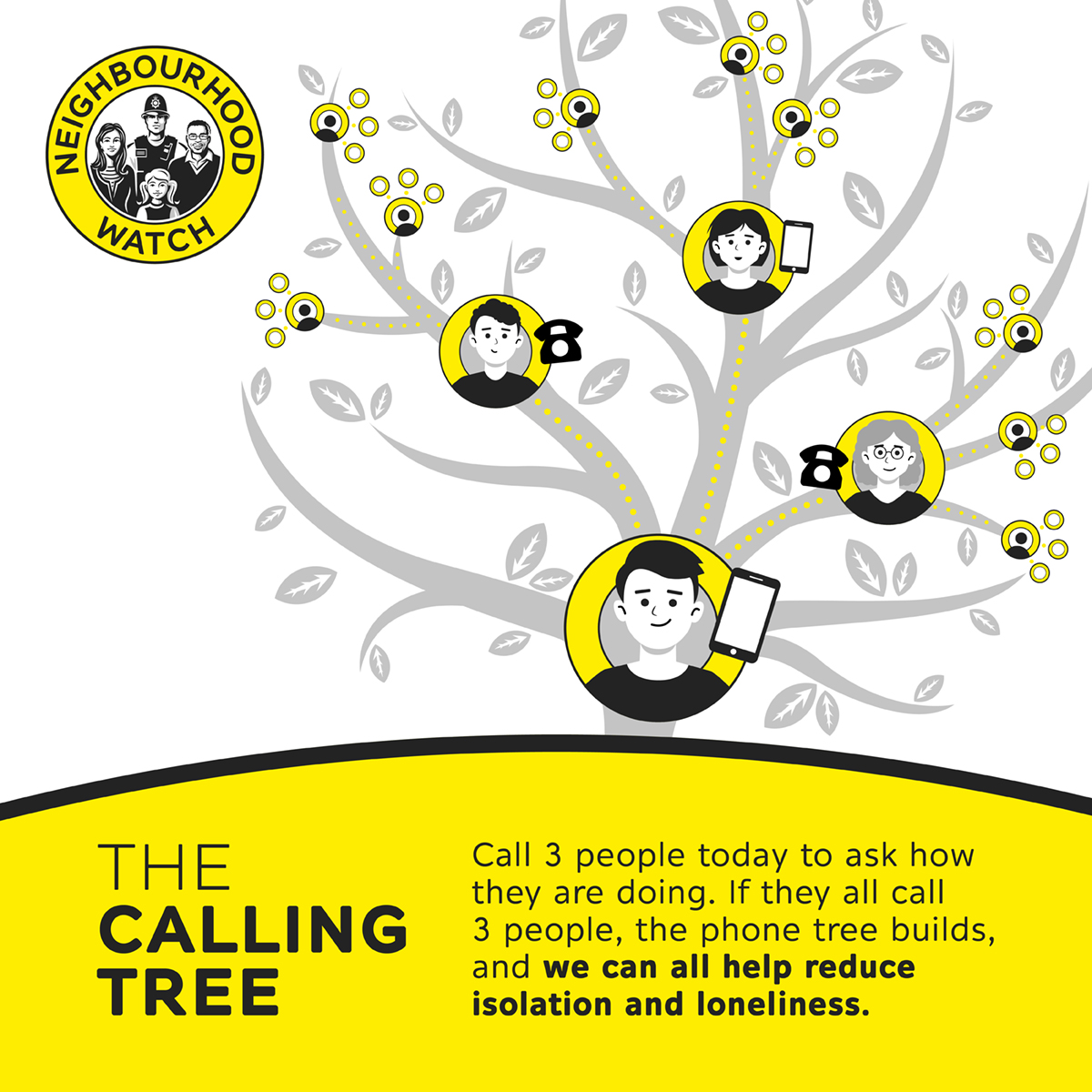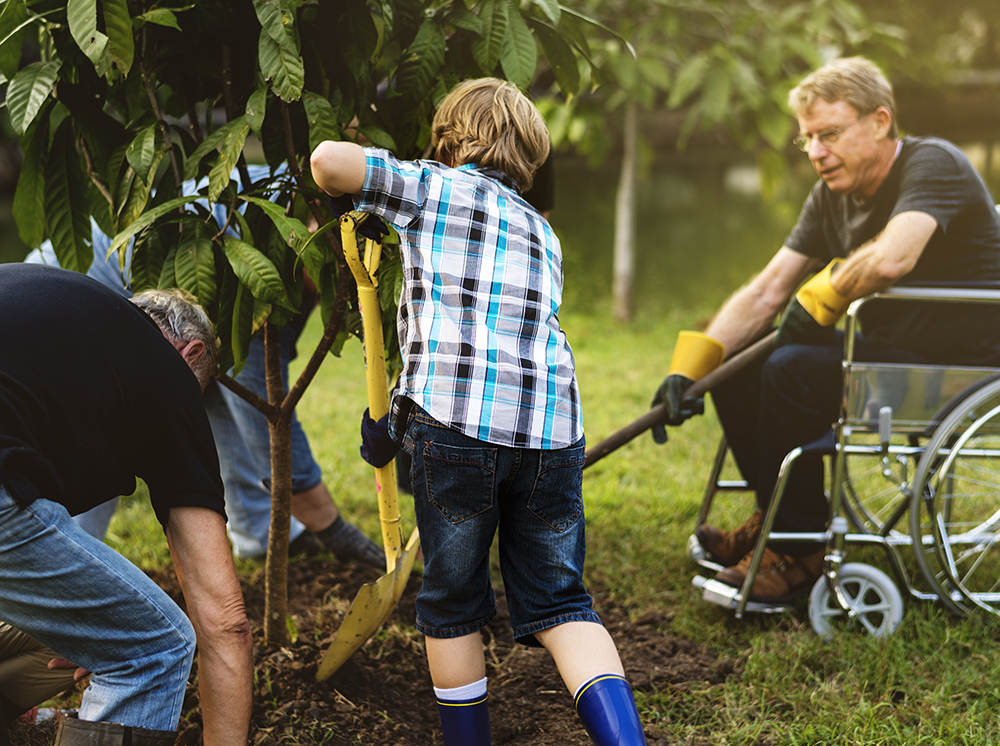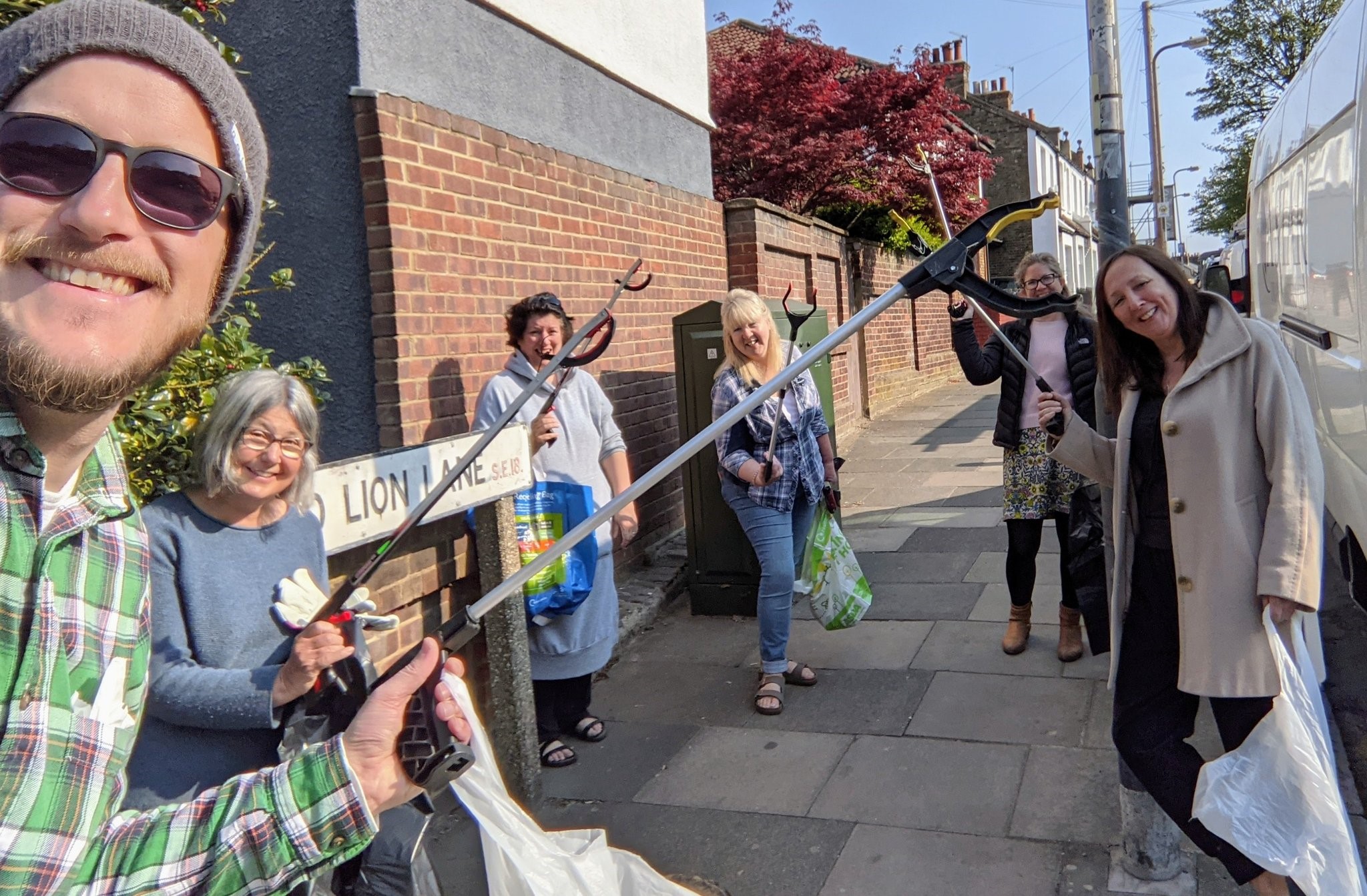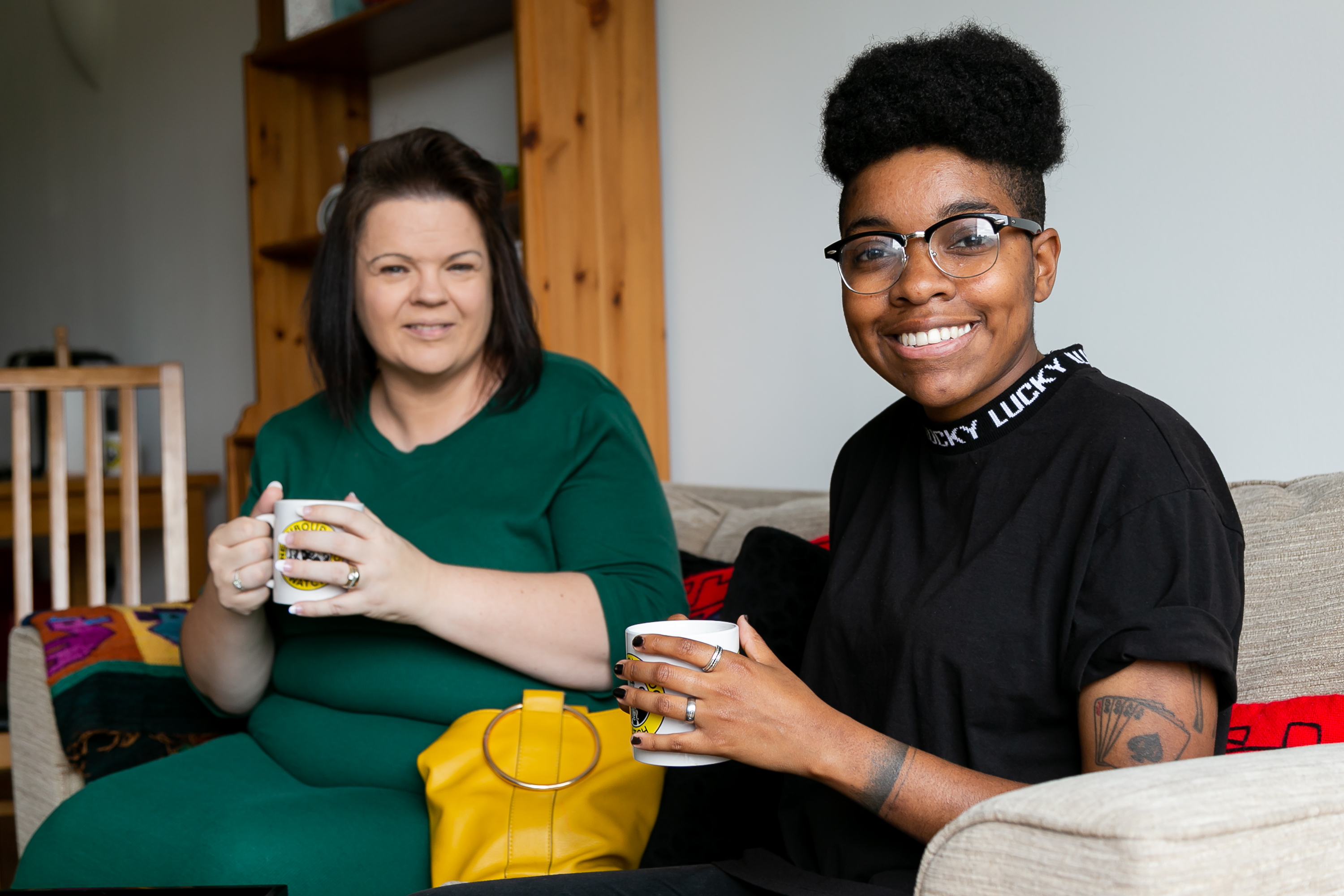Running any of these events will help to improve the local community environment and wellbeing. We’ve graded each event to show:
- the level of difficulty (easy/medium/hard)
- the potential cost (£0 - £££)
- whether it is a face-to-face event or online event, or could be either
Set up a Calling Tree
(medium / £0 / either)
"No one can do everything, but everyone can do something!"

Supporting our neighbours and the wider community who are not on social media can be a challenge. Why not set up a phone tree in your area? It’s a lovely way to stay connected, particularly with those who are not online.
Here’s how it works. You call three people. Those three people call three people each, making nine more. Those nine each call three people, reaching 27 more people. Those 27 each call three, reaching 81 more people. The phone tree builds. Call three people today to ask how they are doing. Reduce isolation and stay connected.
To build your network you could drop this postcard (colour or black and white) through their letterbox.
Did you know…? We have more digital and printable CALLING TREE campaign resources on our website. You can use them to promote this initiative to your community.
Have a cuppa with a neighbour
(easy / £0 / in-person)
The Campaign To End Loneliness shares some stark figures on how loneliness affects our mental and physical health. Loneliness affects all people, of all ages, genders, races, and socio-economic statuses – not just those who are vulnerable and isolated.
The good news is that there are things we can all do to help reduce loneliness. And it starts at home, with small gestures.
Social face-to-face connections can increase our sense of belonging and purpose. They can also increase feelings of happiness and confidence. Having a cuppa with your neighbour does not mean you need to become best friends. But it'll make you both feel more connected. Give it a go, and let us know how it went.
Go greener in your community
(medium / £ - £££ / in-person)

Living in a green community can give you:
- increased morale
- improved health and wellbeing
- fresher air to breathe
- pride in your community
Going green helps us to live a more environmentally friendly lifestyle. It opens us up to considering more ways of reducing our carbon footprint and minimising waste.
There are many ways to go green:
- give out seeds to neighbours, schools and local community members to grow plants
- decorate a community garden
- plant a new tree in your community
Did you know…? Read about the people who turned a disused lay-by, which had attracted drug dealing, fly-tipping and mugging, into a beautiful pocket park. Or find out how to introduce hanging baskets into your community. They can help create conversation and bring a sense of joy and pride into the area.
Share fly-tipping postcards
(easy / £ / in person)
Fly-tipping is when someone dumps rubbish somewhere without permission. It is a local nuisance and makes an area look ugly and run down. Fly-tipping is a serious criminal offence. In 2016/17 councils in England dealt with more than one million fly-tipping cases. But we need to make it easier for people to report it to their local council. Follow these steps to pop a friendly postcard through your neighbour's door with the local details for reporting fly-tipping.
- Download and print this postcard
- Visit gov.uk/report-flytipping to find the email address and phone number to report incidents in your area
- Write those details on the postcard
- Deliver the postcards through your neighbours’ doors
Did you know…? If antisocial behaviour (ASB) is impacting your area, visit ourwatch.org.uk/asb to learn more about recognising, recording, and reporting ASB.
Arrange a community walk-through
(medium/ £ / in-person)
Walking around your area with your neighbours can help identify areas of concern. The concerns may be anything that affects your community, including:
- safety issues
- access for disabled people
- lighting
- parking
- road use concerns
- poor traffic lights
We recommend gathering 5–7 people from different backgrounds, who can offer unique perspectives about issues of safety and inclusion.
Walk around the neighbourhood together, once during the day and once after dark. Make notes of the concerns the group raise, such as poorly lit paths, roads and parks. Ask the group how safe they would feel if they were alone on the walk or waiting alone for a bus. If they say they don’t feel safe, ask them why and record that on your notes.
Our guide, How to conduct an environmental visual audit and our record taking template can get you started. After your walk, use our tasking sheet template to allocate the concerns as tasks for the police, councils and partners to address.
Organise a litter pick
(medium / £ / in-person)

Arranging or joining a litter pick in your community is a great way of bringing the community together. Whether it’s a quick 30 minutes or a couple of hours, neighbours young and old can take part. It helps keep your community looking nice and well-cared for. And it makes the community feel prouder about the area in which they live.
Keeping your community well cared for also distracts people from committing antisocial behaviour. This is something we call the broken window effect.
Did you know...? You can download our short guide How to organise a litter pick for advice and tips.
Make a positivity tree in your street
(easy / £0 / in-person)
Does your street need some uplifting good messages? One simple way of doing that is to make a positivity tree. It's easy to do and everyone can get involved. Simply select a tree, decorate it with positive messages, and invite your neighbours to add to it. All ages can join in. It's a great way of uniting people and spreading joy.
Remember to laminate your messages and tie them tightly to help them hold up through wet or windy weather. Why not take a photo and share it with us? Email it to enquiries@ourwatch.org.uk.

Organise a local food bank collection
(medium / £0 / in-person)

Sometimes people, families and communities need to use food banks to help them through difficult times. Rally your neighbours to donate items to take to your local food bank. This is a great way of giving to those in need in your local community.
You can find out where your local food bank is by visiting the Trussell Trust website.
Get your community talking with Time to Talk day
(easy / £ / in-person)
Time to Talk Day is about communities having more conversations about mental health than ever before. It’s all about creating supportive communities by having conversations with family, friends, or neighbours about mental health. By talking about it we can support ourselves and others.
The day is run annually in February. But you can arrange a day to talk about mental health at any time. Visit Time to Talk Day for tips.

